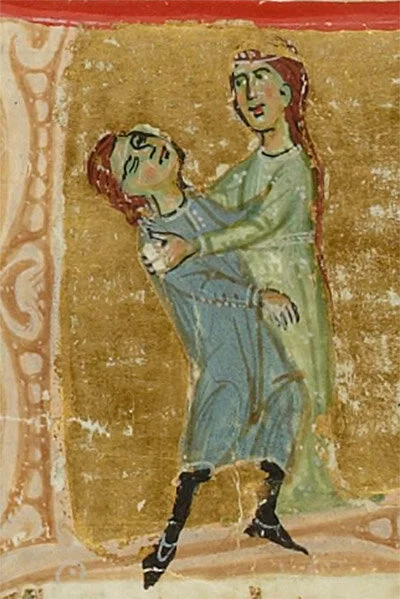The story of the troubadours
In a land far far away lived the Troubadours. These fabled nomads traveled from castle to castle and from kingdom to kingdom in the Middle Ages singing songs of life and bringing joy wherever they went.
The French verb 'trobar', which means to explore, to invent, and to disturb is said to be the origins of the name Troubadour. 'Trobar' also derives from the Greek and Arabic words for melody and singing.
Troubadours had many sides. They were poets, musicians, bon-vivant, passionate lovers, travelers, partiers and existentialists. Through their simple but beautiful music they talked about topics that resonated throughout all levels of society. Several hundred of their songs still survive to this day preserved in manuscripts known as chansonniers.
Troubadours made fun of the establishment and politics, and wrote about dark topics like death, life and beyond, but what the bulk of their work is truly about is the topic of love.
Lady what will you do
With me who loves you so?
Would you treat me so ill I too
Die of longing? Oh,
Good and noble, you,
Your face should sweeter show,
Light my heart through and through!
Great pain I suffer and woe,
Yet merit no hurt, ah no,
For I can’t turn from you.
-Bernart de Ventadorn (fl. 1145-1175)
fin'amor
The Troubadours are credited for bringing about the concept of 'fin'amor', which translates to courtly love. Fin'amor is the intoxicating version of love, the one that is full of passion, lust and a small dose of madness. In a time where all marriages were architected deals for land or politics, true attraction and love secretly roamed wherever it desired and that made for a great deal of sexual tension at high court. Fin'amor fascinated the Troubadours and those that met them. It is true that they were often in love and romancing the most beautiful ladies they encountered, but it is also true that Troubadours were not just men, but women too, and they were called Trobairitz.
Troubadours navigated in the highest circles of society's pedigrees and enjoyed all the included pleasures and privileges that this brought. Some troubadours were employed in a semi-permanent home under a patron lord but most traveled throughout Europe and all around the Mediterranean bringing song poetry and ideas wherever they went.
Troubadours lived an incredible life and flew with freedom. I am picking up the job where they left of. We might not have kings, lords and castles anymore, but I think that society now more than ever, needs Troubadours to remind us to celebrate love and life. I promise I will do my best to honor the art of the Troubadours.





